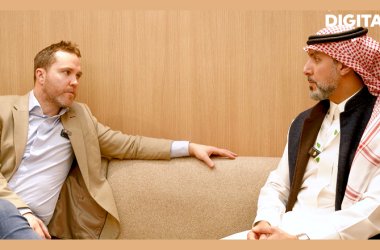
Abdullah Mohammad Khorami, Chief Business Officer at Etihad Salam Telecom Company, discusses how their digital commitments align with Saudi Arabia’s Vision 2030 objective for water management.
Saudi Arabia is positioning itself as a global leader in environmental innovation, committing $180 billion to sustainability and green initiatives, with nearly 45% ($80 billion) specifically allocated for water projects in the coming years. While water scarcity presents challenges in the region due to its arid geography, rapid urbanization and economic growth have catalysed innovative solutions in water management. This substantial investment, aligned with Vision 2030 objectives, demonstrates Saudi Arabia’s commitment to safeguarding its vital water resources through digital transformation. The integration of smart utility management solutions, powered by artificial intelligence and the Internet of Things, is reshaping how water resources are monitored, managed, and conserved across the Kingdom.
Under the Saudi Green Initiative (SGI), launched in 2021, the Kingdom is transforming its infrastructure and business landscape through sustainable innovation. With 44.2 GW of renewable energy capacity developed – enough to power 7 million homes – this transformation is enabling businesses, particularly in rapidly growing industrial and population centres like Jeddah and Mecca, to adopt smart water management solutions that reduce operational costs and improve efficiency. Advanced monitoring tools enable companies to track water usage, identify inefficiencies, and implement targeted conservation strategies. These solutions, supported by robust telecom infrastructure, provide businesses with the ability to maintain optimal performance while contributing to broader sustainability initiatives.
Connected building management systems are transforming energy and water consumption in commercial and industrial facilities. These systems provide real-time insights into resource use, allowing operators to make data-driven decisions that enhance sustainability. By integrating AI-powered analytics, they identify inefficiencies, optimize energy consumption, monitor real-time energy and water usage to drive sustainable operations, reduce costs by optimizing resource use during peak periods, and provide actionable insights to support sustainability targets. As a result, businesses can implement proactive conservation measures, minimize waste, and align with national sustainability goals.
The foundation of this digital transformation rests on a sophisticated telecommunications infrastructure, engineered specifically for IoT-enabled water solutions. With the Kingdom’s strategic push toward generating 50% of its power from renewable sources by 2030, these smart systems are becoming increasingly efficient and environmentally sustainable in their operation. Smart meters operating on this connected infrastructure detect usage patterns, identify leaks, and optimize distribution networks. This technology proves especially crucial in rapidly expanding urban areas, where industrial growth and population density place escalating demands on water infrastructure..
Saudi Arabia’s smart city initiatives highlight the impact of digital innovation on water sustainability. Cities across the Kingdom are leveraging IoT and AI-driven solutions to enhance water quality and environment monitoring, and predictive maintenance. These solutions enable municipalities to optimize resources and improve sustainability outcomes. AI-powered predictive maintenance ensures that infrastructure remains operational by detecting issues before they lead to major system failures. The Kingdom has launched new waste management initiatives that will process 3 million tonnes of municipal solid waste annually into refuse-derived fuels across six governorates. The project incorporates blockchain technology for transparent waste tracking and includes a plastic credits system to incentivize recycling. Under the Ministry of Environment, Water and Agriculture’s ambitious plan to recycle 95% of the country’s waste, these initiatives aim to process 100 million tonnes annually.
As Saudi Arabia moves forward with its sustainability agenda, the collaboration among technology developers and utility operators has already yielded impressive results, with more than 80 initiatives launched representing over SAR 705 billion in investments. This commitment, combined with the Kingdom’s target to generate 50% of its power from renewable sources by 2030, demonstrates how the successful deployment of smart utility management systems stems from the coordinated efforts of both public and private sectors. By embracing digital transformation, the Kingdom is positioning itself at the forefront of sustainable resource management. The integration of AI-powered water management solutions with renewable energy infrastructure not only ensures efficient resource use but also advances the Kingdom’s position as a global leader in environmental innovation. With strategic investments and continued innovation, Saudi Arabia is paving the way for a future where water security is guaranteed, aligning with its Vision 2030 objectives and ensuring long-term sustainability for generations to come.
Image Credit: Etihad Salam





